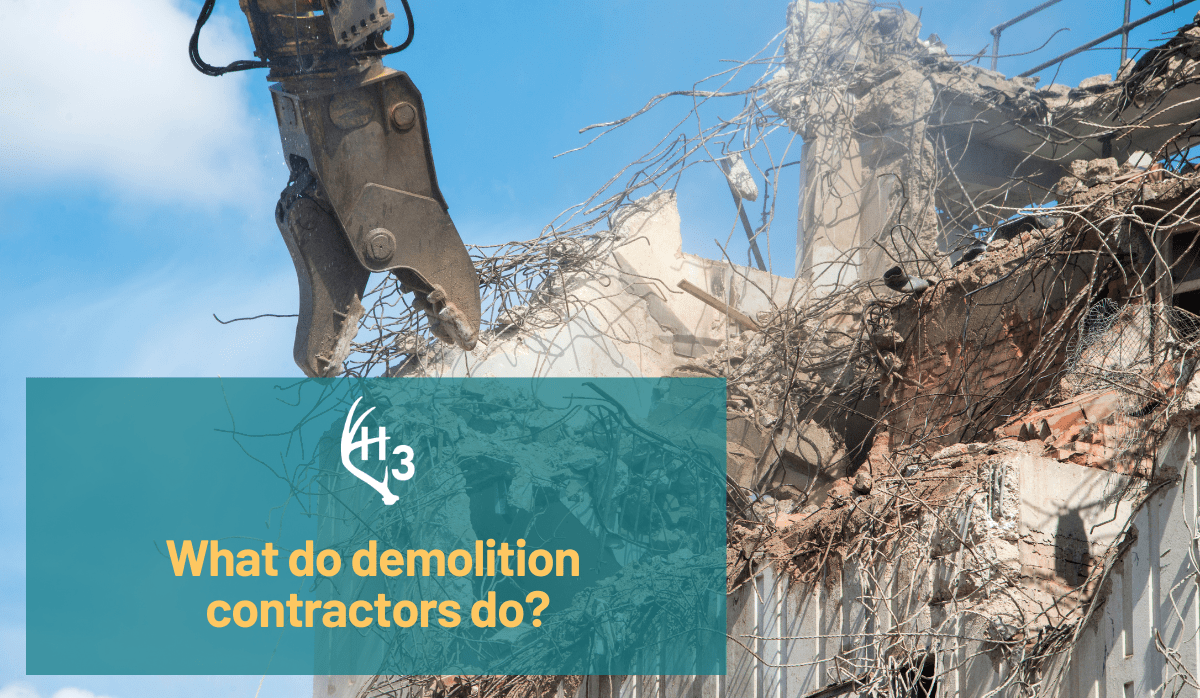Demolition contractors use heavy equipment and careful planning to break down and haul away existing structures. For commercial concrete demolition companies like H3 Construction, these projects require massive coordination efforts with other contractors, regulatory agencies, and a rollout of heavy machinery to meet demolition standards, cleanup requirements and deadlines.
What is the process demolition contractors use?
Concrete demolition looks a bit different from normal building demolition due to the equipment and experience that is needed to break down large, heavy concrete structures into pieces that can be hauled away easily. This type of demolition usually begins as machine work, hand demolition with specialty concrete saws, and occasionally some implosive measures for larger structures.
The demolition process is similar no matter what a company is demolishing:
- Site survey and permits. The first step demolition contractors will complete is a detailed evaluation of the site, structures slated for removal, and any nearby structures or areas that may be impacted. Permits are an integral part of preparation for a project to move forward.
- Hazardous materials identification and remediation. This could include asbestos, mold, waste, lead paint, or other potentially toxic materials that must be removed carefully to ensure demolition crew and public safety.
- Demolition and safety planning. Once contractors remove all toxic materials from the worksite, the work of planning which methods and machinery will be used in the demolition project begins. Every contractor plans for the safety of his crew at each project phase.
- Safety measures implementation. Before work begins, the crew will ensure that all warning signs, street blockades, and temporary fences are in place to protect the construction crew and members of the general public.
- Begin concrete sawing and cutting. The first steps in any commercial concrete demolition project usually involve the use of ground-penetrating radar (GPR) to identify any utilities, then hand-sawing and coring carefully to begin demolition. Once all hidden infrastructure has been protected, demolition contractors can move in heavy equipment to manage removal of large-scale sections.
- Manage waste disposal as the project progresses. Every demolition project produces tons of waste that must be disposed of properly throughout the project. Instead of allowing waste to build up and create a secondary hazard, work crews keep sites clean using heavy equipment and dump trucks to haul away broken concrete for disposal or recycling.
Careful planning helps manage concrete demolition costs
The cost of an average commercial demolition project is about $4-8 per square foot, but those costs increase when concrete is involved due to its bulk and weight. The cost of any project will be higher than anticipated if demolition contractors don’t carefully consider:
- Structure size and weight
- Toxic materials removal
- Waste hauling and cost of disposal
- Demolition permit fees
- Final site cleanup
Many of these costs are project-specific, so it pays to hire a contractor who understands how each of these points will be handled in your specific location, and at your project scale.



